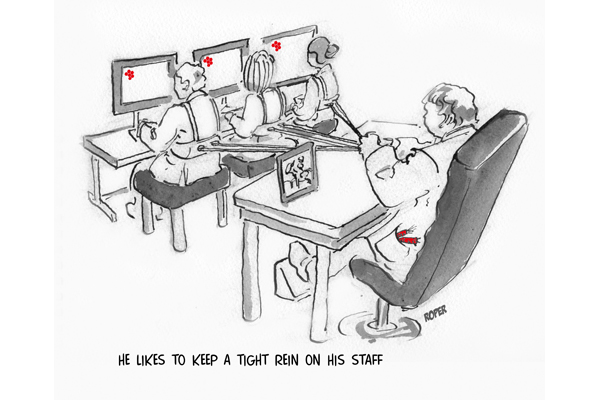When it comes to understanding your organisation, how deep does your knowledge go? Not just the finances, production or structure, but the people: their mindsets, culture, and attitudes? These intangible factors can see your business thrive or bog it down in politics, fear, and dysfunction.
If this feels like a black art to you, that it just comes down to luck (hiring the right people) or relentless troubleshooting, you’re not alone.. But there’s another way.
The trap of ‘hub and spoke’ leadership
Many leaders see themselves as the hub of a wheel, solving problems ‘spoke by spoke’. It’s straightforward when your team is small, but when you’re managing 20, 50, or 200 people, it’s exhausting and unsustainable. It’s impossible to ‘fix’ individuals when the real issues often lie in team dynamics, not one person’s behaviour.
This ‘hub and spoke’ model keeps you trapped, stressed, and stretched too thin. The more your team grows, the more it breaks down.
A smarter, scalable way to lead
What if your organisation could run smoothly without you having to hold it all together? By understanding your organisation as a system, where teams shape individual behaviours, you can create a culture where people regulate themselves.
This requires a mindset shift. If you’ve been running the show with iron control, it’s no surprise that things fall apart when you step back. Your team has been conditioned to rely on you, and they’re not equipped for self-management – yet.
Everything is a team issue
Behaviour isn’t just about individuals; it’s shaped by the group. Even the most cooperative person can turn difficult in a dysfunctional team, and vice versa.
Your job as a leader isn’t to ‘fix’ individuals but to help the team address their patterns of group dynamics. Positive group behaviours will produce engagement and enhanced productivity, while unchecked negative behaviour and interactions create conflict and chaos. This approach empowers teams to take ownership of their own challenges and solutions.
Culture: the silent force driving your business
As your organisation grows, team behaviours evolve into culture – the unwritten rules and beliefs that drive how things are done in organisations.
Ever noticed how quickly patterns like, “Nobody admits mistakes here,” or “We all wait for the boss to leave before going home” become unchallenged beliefs? These ‘unwritten ground rules’ spread quickly and become ingrained, often working against your strategy and goals. If you’re not intentionally shaping your culture, it will shape itself – often in ways you won’t like.
Vital conversations to build a healthy culture
To move forward, gather your leadership team and start asking big questions:
- Where are we going, and are we genuinely aligned?
- What are our core values, and do we live by them?
- What behaviours are acceptable – and what aren’t?
- How do we hold each other accountable?
- How should meetings and decision-making work?
Don’t try to work this out alone – these are group issues, so solve them together. Bring your team into the process to create shared ownership of the culture and ground rules.
Leading with a systems mindset
Here’s how to start leading your organisation, not just managing it:
- Stop blaming individuals for problems. Look at team dynamics instead.
- When issues arise, ask what’s happening in the group, not just with one person.
- Empower teams to solve their own challenges without micromanaging.
- Reflect on your own role in shaping behaviours you want to change.
- Bring in an experienced facilitator to help your teams and you develop healthier patterns.
A culture designed to thrive
Great cultures don’t happen by accident, and they’re not powered by a single leader’s constant effort. They’re intentionally built and driven by strong teams with shared values, to align with your strategy and goals.
By shifting your focus from fixing individuals to fostering strong teams, you’ll create a business that’s resilient, scalable, and ready for the future.
